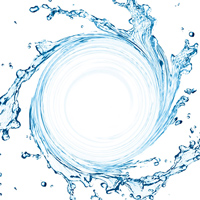Electrolyte / Vasopressin Dependent Disorders

Because of technical limitations of vasopressin assays, vasopressin (also known as antidiuretic hormone - ADH, arginine vasopressin, AVP) concentrations were rarely measured in the past. The vasopressin surrogate Copeptin now opens the possibility to take full advantage of the hormone’s diagnostic potential. Copeptin is routinely measured for the diagnosis of AVP-dependent fluid disorders with an easy to use assay technology at highest sensitivity and stability.
Copeptin is now endorsed by the Endocrine Society of Australia (ESA) for the differential diagnosis of Polyuria-Polydipsia Syndrome. Nigro N, et al. Intern Med J. 2017
Further links on electrolyte disorders
- Pathophysiology of vasopressin and Copeptin release >
- Advantages of Copeptin measurement >
- Diabetes insipidus after neurosurgery >
- Polyuria-polydipsia syndrome >
The utility of copeptin in neuroendocrinological clinical practice
Authors: Dr. Fabio Settanni Bsc, PhD / Dr. Alessandro Berton, MD
Table of content:
- Introduction: what is copeptin?
- Copeptin and differential diagnosis of PPS
- Copeptin and differential diagnosis of hyponatremia
- Case studies
- Principal analytes and reference ranges
- List of Abbreviations/Acronyms
Available in the following languages:
- EN: The utility of copeptin in neuroendocrinological clinical practice
- DE: Der Nutzen von Copeptin in der neuroendokrinen klinischen Routine
- ES: La utilidad de la copeptina en la práctica clínica de neuroendocrinología
- FR: Utilité de la copeptine dans la pratique clinique en neuroendocrinologie
- IT: Utilità della copeptina plasmatica nella pratica clinica della neuroendocrinologia

